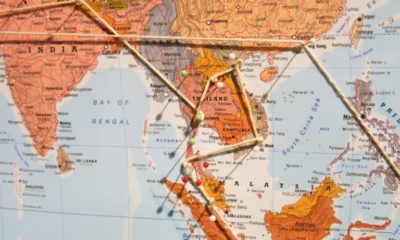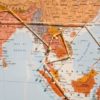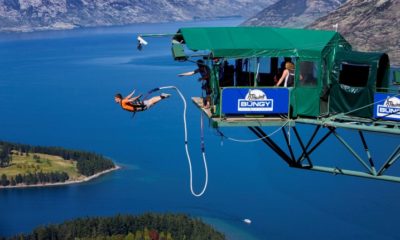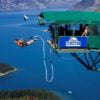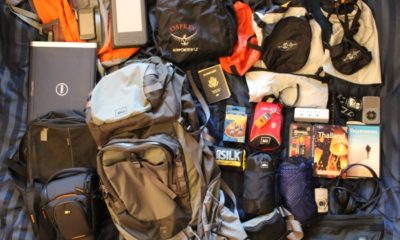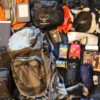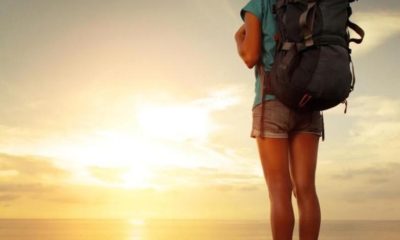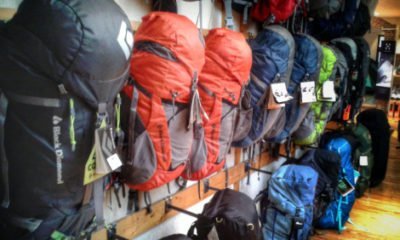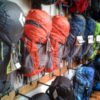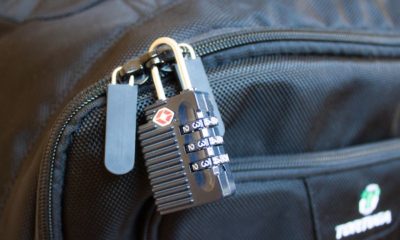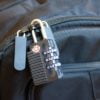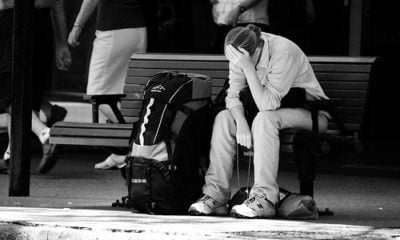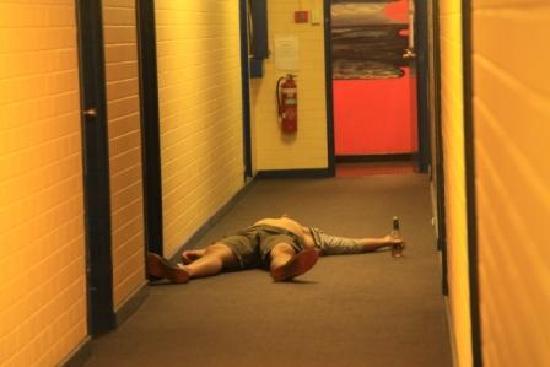Advice
Travel Planning and Preparation: Things To Do Before Travelling
As I am sure you know preparing to go travelling is the boring part, but it has to be done and can have a huge impact on the success of your travels.
As I am sure you know planning and preparing to go travelling is the boring part, but it has to be done and can have a huge impact on the success of your travels.
Half an hour spent arranging a visa at home is much more fun than spending all day finding and visiting an embassy in a foreign country – believe me!
You should give yourself at least a month before departure, but preferably much longer, to plan all of the below.
“Fail to Plan, Plan to Fail.”
For a simplified version of this article, that informs you about when you need to start planning these things, see our Backpacking Checklist.
Before Travelling To Do List:
Visas
Most countries require visas for entry. A lot you may receive on arrival, but equally a lot you have to arrange before arriving.
It may be a good idea to sort out your visa before booking your flight and everything else for that matter. You do not want to spend money on a flight or tour and then get denied a visa.
If you are planning on working in a country, make sure your visa allows you to.
For advice on visa requirements ask your travel agent or airline. You can also find this information online by visiting your foreign office website or your destination immigration website.
Flights
It is highly likely that you will begin your trip with a flight. Booking your first flight or round the world ticket should be a priority as flight prices tend to increase the closer you get to your departure date.
Web sites such as Skyscanner are brilliant tools to compare flights. Many airlines offer round the world tickets and some specialist companies can even get discounted fares for under 26’s and students if you search around enough..
Registering with a frequent flyer program can be very rewarding in the long term future.
Once your flight is booked, you should look at your transfer options, from the airport to your accommodation.
You may also like to read our Airport and Flying Tricks and Tips On How To Avoid Jet Lag.
Tours
If there are parts of your trip that you would rather do with an expert local guide, or with a guaranteed large group of people, you may want to book some tours in.
It can be cheaper to book these at your destination though, and you may want to decide as you go.
I have used and can recommend specialist travel companies like G-Adventures if you need a place to start looking.
Accommodation
You should find and book a place to stay for at least the first few nights before you go.
There are many ways to find accommodation; Tripadvisor, Hostelworld, travel books, etc.
Read more here about How To Choose A Good Hostel
Passport
It is very important to make sure your passport is valid for travel – trust me on this through personal experience. You should ensure your passport has at least 6 months validity after your return date home.
When I left home, I had 16 months validity on my passport – but after spending 12 months in Australia, that was down to 4 months. I had trouble entering Singapore, and my airline made me visit the British and Japanese embassies after I arrived to ensure I wasn’t going to be denied entry to Japan, when I flew out of Singapore.
A damaged passport or outdated photos may also cause problems. There should also be plenty of blank pages.
Be aware it can take 3-6 weeks to receive a new or renewed passport.
It is also a good idea to take passport photos of yourself with you, along with copies (both paper and electronic) of your passport. Ensure to keep them separate from your passport. You should do this with any other important documentation.
Essentials
What do you need to take with you on a long backpacking trip around the world?
It’s a very difficult question to answer – everyone is different and will take different things.
So, I have tried to outline here a list of the absolute essential backpacking kit you need to take with you when travelling around the world (apart from obvious things like your toothbrush, underwear, passport and a good backpack).
Basically, things you might not have thought of; that no backpacker should leave home without.
You also want to read our Travel Packing List when you are ready to pack.
Backpack
You can’t be a backpacker without a backpack! Make sure you pick a good one, as it will be your main travel companion during your trip. We have advice here on How To Choose The Best Travel Backpack.
Vaccinations And Health
If you have any medical problems you should speak to your doctor before going for advice. It may be a good idea to arrange medical and dental checkups, if you are going to be away for a long period of time.
You also need to check and arrange vaccinations if required. The NHS Fit for Travel website provides information on what vaccinations are needed for every possible destination. It may still be a good idea to confirm with your doctor though.
Keep in mind vaccination courses can take up to a month, so you need to go a least a month before setting off – the sooner the better.
Anti-malarial advice should also be sought which again can be found online at the NHS Fit for Travel website or through your doctor.
Your doctor is the best person to advise you on buying malaria tablets, as well as every other medical issue you may have – you shouldn’t trust everything you read on the internet, particular in regards to important issues such as your health.
Read more on Travelling Vaccinations and Health
Insurance
I have to advise you to get travel insurance, if something goes terribly wrong it could save you a hell of a lot of money or even your life.
I will say though, I worked in the insurance industry for two years and it is all about analysing risk. If you are going to a war torn country, a country with poor health services or doing some very dangerous activities, then yes, absolutely get the best insurance you can find. But for my year in Australia, I knew I would be working in a safe environment for a large proportion of my time there, as well as being covered on the Australian national health service, as part of a reciprocal agreement with the United Kingdom (I had to sign up for this service – don’t think you are covered automatically). I also had very few valuables, so I chose against buying travel insurance for that portion of my trip.
For peace of mind you should get insurance, but make sure activities you wish to do are covered or it is pointless getting – insurance companies do not like paying out. Most cheap policies don’t cover things like accidents whilst intoxicated – make sure you read the policy in full.
Working Holidays (if applicable)
There are many additional things to consider if you are going to be working in a country. You can leave everything until you get there, and some things may only be relevant in certain countries, but you may consider sorting out the following:
Read here for specific advice on Working Holidays in Australia.
Working Holiday – Additional Factors To Consider
- Bank account
- Tax number
- Place to live
- Jobs
- Contacts
- Registering with a doctor or national health service
- CV/ other documentation
- Mobile phone sim
Money
It is always a good idea to arrive in a country with some local currency – not all airports or even countries have ATMs.
US dollars are a great currency to have on you too – many African and Asian countries accept dollars and they are often used for official visa payments. Taking $50-100 as an emergency stash is a very good idea.
I would also highly recommend getting a prepaid currency card, or a Monzo/Revolut style bank card, before you go. These work exactly the same way as a debit card – you can pay for goods in stores or online and often use ATMs without charges. You load cash in your home currency to the card (can be done easily online) and then when paying the card company will convert to the local currency at a much better rate than at any bureau de change.
Benefits Of A Prepaid Currency Card
- You don’t need to carry loads of cash with you.
- Good exchange rates.
- Works with almost every global currency.
- Security – if you lose it, just cancel it. If someone manages to access your pin protected account you only lose the money you loaded to the card.
ID And Discount Cards
It is a good idea to take another form of ID with you – you don’t really want to take your passport out on a night out. They may also be cases where you are asked for other forms of ID in more serious scenarios – like if your passport is damaged, etc.
Discount cards are great and can help extend your trip with the savings. They can save you money on accommodation, food, tours, and even flights. Here are some you can look into – ISIC, HI card, YHA.
Always check for discount cards or brochures on your travels (at airports, hostels, tourist info centres) – I saved $80 in New Zealand after finding a petrol discount card on the front a free tourist magazine, whilst waiting to reclaim my baggage.
Loose Ends
For some people there may be a lot of loose ends to sort out and others none. There may be things that are specialist or unique to you that you may need to arrange. You really need to think what you are going to need whilst you are away, and what might come back to bite you from home.
Things You May Need To Sort
- Your living expenses – you may wish to halt Rent, Gas, Electricity, Water, Car Insurance, Broadband, TV license, Council Tax, etc.
- File your tax return.
- Your job/ future job situation.
- Inform your bank of your plans – they may cancel your cards if they see them being used unexpectedly abroad.
- Cancel your phone contract, memberships, subscriptions.
- Forward your post.
- Your pets.
- Get your parents/ grandparents setup on social media, email and/or video calling.
- Sell your car if you don’t need it or rent out your property for extra cash.
Remember to use our Backpacking Checklist, a simplified version of this article, that informs you about when you need to start arranging these things.


